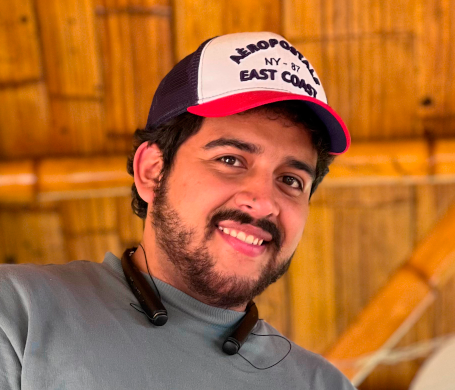Brandon Barcelo
@brandondejesusb
The first scene takes place in Puerto Asís, Putumayo. A land that has little to do with our Caribbean and that rather responds to the logic of Ecuador. Upon arriving at the hotel, an unmistakable voice and an incomparable verse are heard in the distance: “And it is the example that I want to leave my followers: that you have to love your friend, take care of him and protect him.” I quickly look for where the vallenato comes from: a hardware store in front of the hotel has a speaker outside. Accordion music seems to play all day.
The second scene takes place on a road in Putumayo. While the car plays “Del Rey es la reina” in the background, the driver says that in Mocoa there is an entire block dedicated exclusively to rumba -not partying- vallaneta, that of the shows they crave in Puerto Asís, are those of vallenato and that several times a year some artists perform that he can’t remember.
The third scene happens to me traveling from Bogotá to Barranquilla a week after the previous two. I get to buy food to wait for the trip, and as soon as I get close to the checkout counter at the small restaurant in the airport, some unmistakable chords are heard that give way to the accordion to speak: “The wound that I always carry in my soul does not heal” . From one moment to the next, the cashier, who is the same one who prepares fast food, starts singing and I suddenly realize that she is not from there. She knows all of her lyrics and apparently she has already taught them to her coworkers who also sing them in whispers. I start to sing it and spontaneously, like someone meeting a friend from years ago, we start talking. She tells me that she is from Fonseca and that due to a lack of opportunities there, she has to work in Bogotá, that she goes one week a year and that she anxiously awaits that week to arrive, and that meanwhile, vallenato makes her feel as if she were on the terrace of his house.
Three scenes that could be a hundred, or a thousand, if I were more attentive to what is happening around me. Scenes that are repeated over and over again in all corners of the country -and in some other countries-, where vallenato continues to be the music of the people. Scenes that allow me to believe that vallenato will be alive as long as there is a soul willing to listen, feel and sing that music, before or now. And after these little stories I only have one question that Pipe Peláez already asked himself in his song “And what would become of me”, and that now I want to ask myself in a different way: Could it be that in Germany they imagined that such a region distant from his customs, would he do so much with his accordions? I do not think so.
